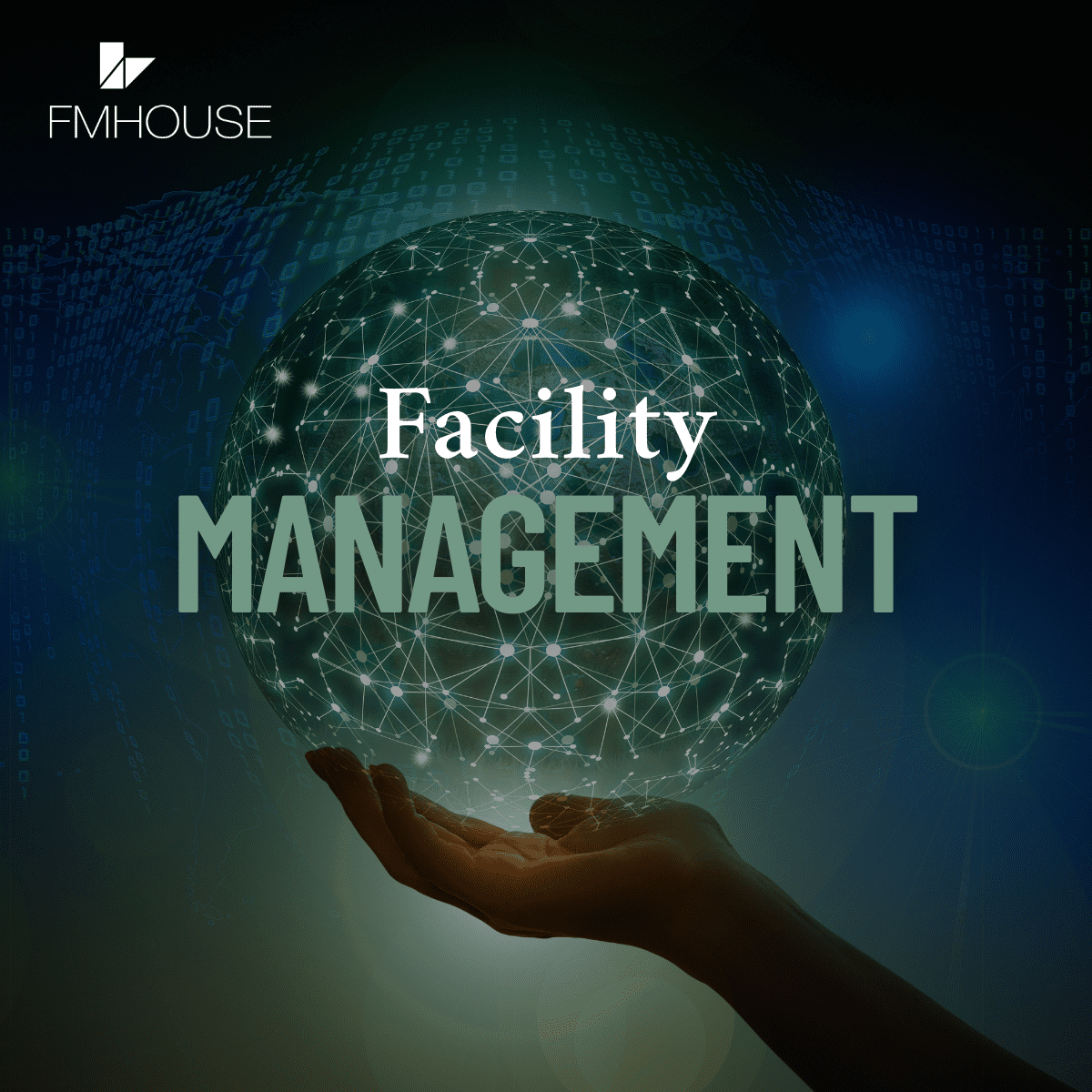Intelligence degree has always been something really difficult to measure and sometimes it can make the difference when getting a job or another. Measuring intelligence has always been a great challenge.
There are several organizations for ‘intelligent people’ and their admission requirements are accredited IQ tests. According to MENSA one out of every 50 people has the skills to be a member and technically considered to have a high IQ. Other more exclusive associations such as PROMETHEUS have an acceptance rate of 1 in 30,000.
At the end of the 21st century several new psychological theories reach awareness, such as the multiple types of intelligence proposed by Gardner, where 7 types of intelligence, which after where 10, are identified.
In this article we will get to know the different types of intelligence and how each of them can have influence in a Facility Manager’s activities, depending on the position and the responsibilities the FM has in his/her organization.
TYPES OF INTELLIGENCE
Howard Gardner, a Harvard University psychologist, defines intelligence as “the ability to solve problems or to create products that are valued within one or more cultural settings” and he thinks that every human being is able to develop his intelligence in a higher or lower degree. He proposes different types of intelligence, all equally important:
Verbal–linguistic intelligence
Definition: it is the ability to express yourself effectively through language, both spoken and written. It describes the sensitive ability in the written and spoken language, the ability to learn languages, communicate ideas and achieve goals using linguistic skills.
Abilities and main perceptions: words and language.
Professional profiles: writers, lawyers, politicians, religious leaders, poets…
Is it easy for you to remember phrases or quotes? Do you enjoy puns? Are you interested in debates? Is it easy for you to learn languages? Do you like reading? If you have answered yes to these questions, you have this type of intelligence.
Verbal–linguistic intelligence is essential for contract drafting, negotiating, communicating with different interest groups and explaining projects to superiors or the rest of the team. This type of intelligence is essential at job positions such as Contract Manager and Property Manager.
Logical-mathematical intelligence
Definition: it is the ability for logical reasoning and mathematical problems solving. The speed to solve this kind of problems is the indicator that defines the level of logical-mathematical intelligence a person has. The famous IQ tests are based on this kind of intelligence and, to a least extension, to the linguistic intelligence.
Abilities and main perceptions: numbers and logic.
Professional profiles: scientists, economists, academics, engineers and mathematicians stand out due to this kind of intelligence.
Is it easy for you to make budgets? Do you like logical games like sudokus? Do you not use your fingers when counting? When you face a new challenge or problem, do you analyse all the consequences? Is it easy for you to remember phone numbers? If you have answered yes to these questions, you have this kind of intelligence.
Logical-mathematical intelligence is essential in cost management and budget control, calculating ROI, which defines the investments that will be done on each building, etc. It is also related to risk management, risk analysis and mitigation measurements needed. This type of intelligence has particular importance at job positions such as Technical Manager, Maintenance Manager, Procurement Manager, Risk Manager, Business Continuity Manager, Compliance Manager and Safety Manager.
Spatial intelligence
Definition: it is the ability to make a mental 3d model, it allows observing the world and objects from different perspectives and graphically represent ideas.
Abilities and main perceptions: images and space.
Professional profiles: this is the type of intelligence that sculptors, architects, painters, photographers, designers, publicists, amongst others have.
Is it easy for you to interpret graphics and flowcharts? Do you recognise places where you have been even when you were little? When you focus, do you tend to scrawl? Can you easily imagine how an object would be seen form a different perspective? When you close your eyes, can you see images clearly? Can you easily read a map? Do you easily get oriented when you go to a new place? If you have answered yes to these questions, you have this type of intelligence.
Spatial intelligence is essential in space management for its graphical representation as well as its design and planning. It is also useful when using graphic information in reports to show the results clearly in order to help decision making. This type of intelligence is vital at job positions such as Space Manager, Construction Manager and Performance Manager.
Musical intelligence
Definition: it is the ability to perceive, distinguish, transform and express musical sounds’ timbre and pitch. It allows you to express yourself through musical forms, it includes abilities such as singing in any musical gender, playing an instrument with perfection, directing an orchestra, composing in any gender and, to some extent, musical appreciation. It entails, not only the ability to compose and play musical pieces with pitch, rhythm and timbre, but also the ability to listen and judge.
Abilities and main perceptions: music, sounds, rhythm.
Professional profiles: musicians, composers, musical critics, etc.
Do you play a musical instrument? Do you like a wide variety of music styles? Are you able to identify sounds without reading them? Do you like having background music? If you have answered yes to these questions, you have this type of intelligence.
Bodily–kinaesthetic intelligence
Definition: it is the ability to control and coordinate body moves and express feelings with it. The main abilities related to this intelligence are body control over objects and effective dominion to mentally measure the physical space.
Abilities and main perceptions: control of body moves.
Professional profiles: this type of intelligence stands out in athlete, artisans, surgeons, dancers, etc. Bodily-kinaesthetic intelligence is also taught to modern police forces and Special Forces’ recruits globally.
Do you dance or play a sport? Are you good at darts or frisbee? Do you practice extreme sports when you experience an adrenaline rush? If you have answered yes to these questions, you have this type of intelligence.
Musical intelligence and bodily–kinaesthetic intelligence have a less obvious application to the daily activities a Facility Management carries out, but these abilities shape a type of professional that can share interesting information with the people he deals with, enriching relationships.
Interpersonal intelligence
Definition: interpersonal or social intelligence is the ability to understand other people empathically. Interpersonal intelligence is very important in everyday life, it determines the choice of a partner, friends and, to a high extent, success at work or studies.
Abilities and main perceptions: other people’s emotions.
Professional profiles: this type of intelligence is usually found in good sales agents, politicians, teachers or therapists.
Are you a social person and like being surrounded by people? Do you care about what people around you feel? Do you easily notice when someone likes or dislikes you? Is it easy for you to speak with people you don’t know? Is it easy for you to solve arguments and conflicts between other people? If you have answered yes to these questions, you have this type of intelligence.
Intrapersonal intelligence
Definition: intrapersonal or emotional intelligence is related to emotions and allows understanding oneself, the access to the own emotional life and the own feelings range. It includes our thoughts and feelings; it refers to the self-reflection and self-perception that a persona has of himself. Interpersonal intelligence allows understanding and working with others, while intrapersonal intelligence allows understanding and working better with oneself.
Abilities and main perceptions: self-consciousness.
Professional profiles: this type of intelligence is related to psychological sciences, to philosophers and mature individuals who have reached a deep self-knowledge.
Do you like to meditate? Do you find personality tests interesting? Do you enjoy individual sports more that collective sports? Do you set goals for the future? Do you enjoy spending time alone? If you have answered yes to these questions, you have this type of intelligence.
Interpersonal intelligence helps in suppliers’ and clients’ management, helps understand their needs, detect their satisfaction and manage their expectations. This type of intelligence is not essential at every job position, but helps at other positions such as Customer Business Manager and Site Manager.
Naturalistic intelligence
Definition: it is the ability to distinguish, classify and use environmental elements, objects, animals or plants, from the urban environment as well as the suburban or rural environment. It includes the abilities of observation, experimentation, reflection and questioning of our surroundings.
Abilities and main perceptions: environment.
Professional profiles: biologist, botanist, zoologist, ecologists and country people are the ones with a higher naturalistic intelligence.
Do you like nature and the countryside? Do you have pets? Do you like going to the zoo? Can you distinguish amongst different kinds of trees by looking at their leafs? Do you enjoy taking care of your garden? Are you interested in learning about nature and often watch documentaries? If you have answered yes to these questions, you have this type of intelligence.
Naturalistic intelligence has direct relation with sustainability management, because of that, it is vital at job positions such as Environmental Manager, Sustainability Manager and Energy Manager.
Creative intelligence
Definition: it is the ability to invent, to devise, to have original thoughts, constructive imagination, divergent thoughts or creative thinking. It allows generating new ideas or concepts or new associations between known ideas and concepts, which usually leads to original solutions.
Abilities and main perceptions: ideas.
Professional profiles: professional whose jobs require constant innovation.
Is it easy for you to make-up stories? Is it easy for you to “decorate” reality? When you try something, do you usually ignore instructions? Do you usually change the way you do things to improve your results or just to try a different ways? Do you usually come up with a different plant for every occasion? If you have answered yes to these questions, you have this type of intelligence.
Creative intelligence facilitates addition of new solutions and products, it is essential for continuous improvement. This type of intelligence is necessary for all profiles, standing out at designing tasks be part of the Space Manager´s responsibilities.
Spiritual intelligence
Definition: it connects energy and matter, it is dedicated to transcendence, to the sacred, to virtuous behaviours: forgiveness, gratitude, humility and compassion, to understand that we are part of a whole with which we need to be in contact.
Abilities and main perceptions: ethics, life value, religion.
Professional profiles: some develop it by praying, embracing their social responsibility, practicing spiritual laws of love, peace, and happiness. They improve their life quality.
Do you practice a religion? Have you ever been a volunteer? Do you usually donate to people in need? Are you part of a charity? Is it easy for you to forgive? Do you get irritated when something is unfair? If you have answered yes to these questions, you have this type of intelligence.
Spiritual intelligence is necessary for teamwork, to encourage consciousness of being part of a group and supporting a business. It improves the ability of client service support. This type of intelligence is necessary at every job position, particularly for the Hospitality Manager.
In the past, just verbal–linguistic intelligence and logical-mathematical intelligences were used as basis of IQ tests. Each type of intelligence defines in which social, cultural and labour area we can manage more effectively. The types of intelligence a person has indicates not only his abilities, but also the way or method he prefers to learn and develop his strengths as well as develop the types of intelligence he lacks of. For example, a person that has a high musical intelligence and low mathematical intelligence will more easily develop numeric and logical abilities through music than if he is bombarded with just numbers. A person with low spatial intelligence and high mathematical intelligence will more easily develop his spatial abilities if he can do it through numbers and logic.
We all have different types of intelligence, but not to the same extent, some type always stands up over the others. (Gardner suggests that most people are strong in three categories). And, as we have seen, all types of intelligence have influence in a Facility Manager’s activities, to a greater or lesser extent depending on the position and responsibilities he has within the organization.
> Photo by Allan Ajifo bit.ly/1Fp3PCd







